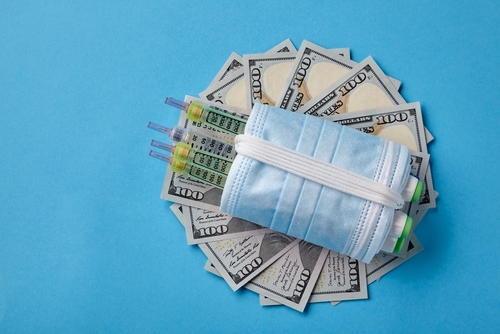
Congressional Democrats have shifted their focus to cutting the cost of insulin, a specific policy objective for drug pricing reform.
This comes following the defeat of their Build Back Better package earlier this year.
Senate Majority Leader Chuck Schumer, a New York Democrat, announced earlier this week he will attempt to advance cost-cutting initiatives this spring, providing the party with a much-needed victory ahead of the November midterms.
The Bill’s Drafting
“At the moment, the cost of this life-saving medication is between $300 and $600 for every prescription; this is not only absurd, but it is also dangerous.”
“Millions of Americans support my effort to set the price of insulin at $35, allowing us to end the practice of rationing this medication and ultimately make it affordable and available to all Americans,” Schumer added.
We need to lower costs for Americans. It's time for Congress and the President to use all our tools to crack down on monopolies that allow big companies to charge high prices for insulin and other prescriptions. Let’s do this.https://t.co/scy5N7uQM9
— Elizabeth Warren (@SenWarren) March 26, 2022
Although the bill’s text is still being worked out, it would merge two separate pieces of legislation aimed at reducing insulin expenses.
The first is a bill introduced by Sen. Raphael Warnock, a Democrat from Georgia who is up for reelection this fall.
It would cap consumers’ out-of-pocket insulin costs at $35 per month, but would not reduce the overall price of insulin.
The other bill, however, was drafted by Maine Republican Sen. Susan Collins and New Hampshire Democrat Sen. Jeanne Shaheen.
Their plan, filed in 2019, would prohibit rebates given by pharmaceutical companies to pharmacy middlemen, in exchange for the pharmaceutical business agreeing to reduce product prices to 2006 levels.
Pharmacy benefit managers, who administer prescription drug benefits on behalf of insurance carriers and other payers, boosted rebates as a set percentage of insulin list prices, increasing the products’ cost to customers.
We are experiencing all of this because of a stolen election. Ukraine, gas prices, wide open southern border, inflation, heating costs, mandates, sky high insulin costs etc
— Josh Barnett for Congress (AZ-01) (@BarnettforAZ) March 26, 2022
Failures and Halts
The little headway Democrats achieved on their drug pricing reform agenda, which included a proposal allowing for limited government negotiation of some pharmaceuticals in Medicare Parts B and D, was stalled by the outbreak of the COVID-19 epidemic.
The forecast was made worse last December when President Biden’s Build Back Better Act failed.
The November elections are approaching. A bigger package of reforms has stalled, despite a revived effort earlier this month by Oregon Democrat and Senate Finance Committee Chair Ron Wyden for legislation to grant Medicare price-negotiating authority with drug firms.
Republicans and the pharmaceutical industry, on the other hand, don’t like the idea. They say putting it into place would make it more difficult to find cures and treatments.
H.R. 3, or the Elijah E. Cummings Lower Drug Costs Now Act, sponsored by the Democrats, has been stalled multiple times, owing to its contentious drug pricing negotiating provision.
It was launched for the first time in 2019 and then again in 2021. It was defeated in the lower chamber in 2019 with a Democratic majority.
They approved it virtually unanimously, but the Senate declined to take it up.
In September, three Democrats joined their Republican counterparts in voting against the bill in the Energy and Commerce Committee. This time, the bill was again put on hold.
















